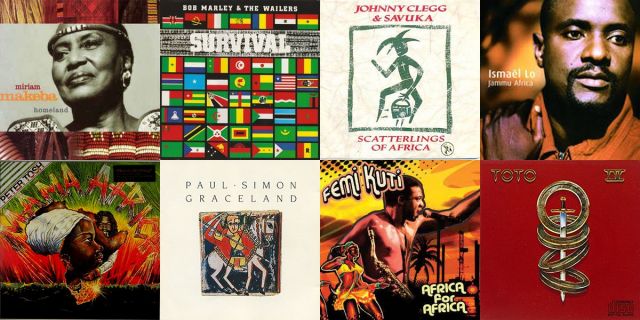
MUSIC
14-05-2021 di redazione

Kenyans have voted 'Stellah' the most beautiful love song ever in Kenya.
It has nothing to do, either musically or poetically, with the eternal Malaika (which, to tell the truth, we still don't know whether it is a traditional Tanzanian song or was actually written by the Kenyan singer-songwriter Fadhili Williams), it would be a bit like voting for Umberto Tozzi's "Ti amo" instead of Gino Paoli's "Il cielo in una stanza".
But love songs often have an emotional strength that has little to do with chords and harmonies, because they are often born of true stories, of moods felt in the skin of those who compose them and which almost always speak of abandonment, defeat if not remorse or betrayal.
This is the case of 'Stellah', whose story has fascinated Kenyans for at least three generations.
The song, a classic example of rhumba, a danceable Central African rhythm that evolved in the regions around Lake Victoria, was written by singer and guitarist Freshley Mwamburi, a musician born and raised on the slopes of Kilimanjaro in the province of Taita Taveta.
In the 1980s, Freshley was in love with a girl called Stellah, whom he met in high school. At the time, he was playing in a band called, almost ironically, 'Everest Kings'.
The musician and the student had a brief romance, then she decided to leave him and move to Nairobi, where she got engaged to another Kenyan.
The heartbreak over the beautiful girlfriend inspired Mwamburi to create what would become the first true Kenyan hit. The song became an anthem, played on all the national radio stations and even reached the ears and record and cassette shops of Tanzania and Uganda.
There was no rhumba group that didn't play 'Stella wangu' (the first title of the song), the lovers' song, at the climax of the live performance.
The ballad became legendary when Freshley, who became the leader of Les Wanjika, one of the most popular bands in East Africa, told the story behind the song, the true story of a love affair that lasted more than ten years and ended on 17 May 1992, exactly 25 years ago.
Before that there were years of letters, phone calls and hopes.
Stellah left her fiancé to go and study in Japan, and Freshley, at the height of his success, never wanted to let her lack his affection and even decided to help her financially with her studies.
He wrote her dozens of passionate letters, but received only friendship and gratitude in return.
However, the musician never stopped dreaming that Stellah would marry him when she returned from the East. Freshley wrote more songs dedicated to her, practically his entire output.
On the day Stellah finally decided to return to Kenya after university, the eternal lover showed up at the Nairobi airport with his guitar over his shoulder, ready to sing the song that was making him famous everywhere.
But the scene in front of Mwamburi was totally unexpected.
Along with 'his' Stellah, a baby in a pram and a Japanese boy stepped out of the plane. The girl recognised the musician and went to meet him, hugging him.
He is my son," she confided candidly, "and this is my husband, a colleague from university whom I met in Japan.
At that point Freshley decided not to hold a grudge (and how could he) but to change the lyrics of 'Stella Wangu' which became simply 'Stellah', was recorded on a new record and told the whole story. It is a story that still moves many Kenyans, who even commemorate 17 May every year as 'Stellah's Day of Return'.
Today Freshley Mwamburi no longer likes to talk about Stellah's story, the song having since been recorded in Afro, reggae and disco remix versions.
He leads a quiet life, performs in the Machakos area with his Everest Kings and every now and then gets some news from his one-time love, the protagonist of the song of his life and that of so many Kenyans.
EVENTS
di redazione

Kennedy Cozzi Omwansa, aka K Simba is a Kenyan musical pride with a growing heart, imprinting and professionalism that owes much to Italy.
We have already talked about him, about his important voice capable of leaning on reggae, afro beat...
STORIES
di Simona Cascarano

Enrico and I made a dream come true in Kenya, in Watamu.
We have been a couple for six years, but we wanted to crown our love with an unforgettable ceremony and a great party to share with relatives and friends.
ART AND CULTURE
di redazione

"Africa."
How many times have we heard this word, this evocation, in a piece of music?
Hundreds are the pop songs whose title bears the name of the Black Continent, every language and nation has its own song.
Here is...